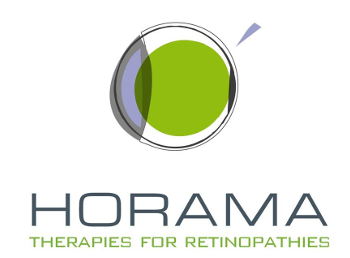
Paris, France, May 4, 2020 ‐ HORAMA, a clinical stage gene therapy company in ophthalmology, today announced the appointment of Dr. Ian Catchpole as its Chief Scientific Officer. Ian will draw on his 25-plus years of experience in drug discovery and development to oversee HORAMA’s scientific operations.
Ian has worked for over 25 years at GlaxoSmithKline (GSK) and its legacy companies, where he built an excellent reputation as both project initiator and leader, successfully attracting support and funding for many projects, taken from inception to early clinical/GMP development. At GSK, Ian also managed scientific, business and strategic operations of many programs, through partnerships with academic institutions and biotech collaborators. He has extensive knowledge in a wide range of areas, including ophthalmology, cell and gene therapy, vaccination and immuno-oncology. Ian is author of over 40 scientific articles and inventor on 17 patents. He is a Fellow of Royal Society of Biology (FRSB) and was an Inaugural GSK Fellow.
“We are delighted to announce Ian’s appointment as our Chief Scientific Officer. The depth of his knowledge of gene therapy and his experience in bringing novel biopharmaceutical approaches to clinical ophthalmology will be great assets to HORAMA. We look forward to working with him toward bringing our gene therapy products to ophthalmic patients,” said Christine Placet, CEO of HORAMA.
“I am honored to serve as HORAMA’s Chief Scientific Officer and I look forward to helping consolidate the company’s gene therapy leadership in ophthalmology, to advance our pipeline of clinical programs and to deliver best-in-class therapies for inherited retinal dystrophies,” said Ian Catchpole, CSO of HORAMA.
Before joining HORAMA, Ian worked as a consultant in ophthalmology, biopharmaceuticals, cell and gene therapy, immuno-oncology, novel therapeutics and drug discovery/delivery. He was previously Director of Research at TC Biopharm.
Prior to leaving GSK, Ian worked as a “Cell and Gene Therapy Discovery” Translational Leader. He was named a GSK Fellow in 2016 for his contributions to the company. He was previously program leader for both the sustained-release anti-VEGF for wet AMD and the anti-beta-amyloid Ab program – taken to the clinic for Geographic Atrophy – within GSK Ophthalmology. Ian also worked with AAV delivery of complement factors to the eye for dry AMD during GSK’s collaboration with Jim Wilson’s group. Ian won two scientific excellence awards for his contributions to ophthalmology and the delivery of Biopharms. Ian also led the Alternative Delivery Program of the Biopharm Vaccine Technology initiative at GSK where he helped secure over £1 million in total funding. Ian also worked for the Gene Therapy Group in the late 1990’s at Glaxo Wellcome. He joined the Glaxo Transgenic Group in 1993, after post-doc research at the Karolinska Institute in Sweden on embryonic stem cells and HSV-2 at Bristol University, UK.
Dr. Ian Catchpole has a D. Phil in Molecular Biology and received a B.A.(Hons) in Biochemistry from Oxford University.
Gene therapy market (source: FiorMarkets and Grand View Research, Inc)
Gene therapy is being developed with an aim to treat rare conditions with limited or no treatment options. Genetic disorders occur due to gene mutations, which can result in incorrect protein synthesis. Gene therapy is used to introduce a healthy gene into cells to allow the synthesis of a functional protein. Growing awareness and acceptance of gene therapy for various disease treatments are favouring market growth. The global gene therapy market is estimated to reach $5.5 billion by 2026, while the global ophthalmology market is projected to grow to $43 billion by 2026 (April 2019 report issued by Grand View Research, Inc.).
About HORAMA
At HORAMA, we believe in gene therapy to treat a broad range of inherited disorders. Our focus is on Inherited Retinal Dystrophies with our lead clinical program targeting patients with PDE6B gene mutations, a condition which leads to progressive vision loss in children and adults ultimately leading to legal blindness. Our team is pushing the boundaries of gene therapy by advancing next generation delivery platforms that will improve effectiveness and coverage of gene transfer to address multiple diseases. For more information, please go to: www.horama.fr.